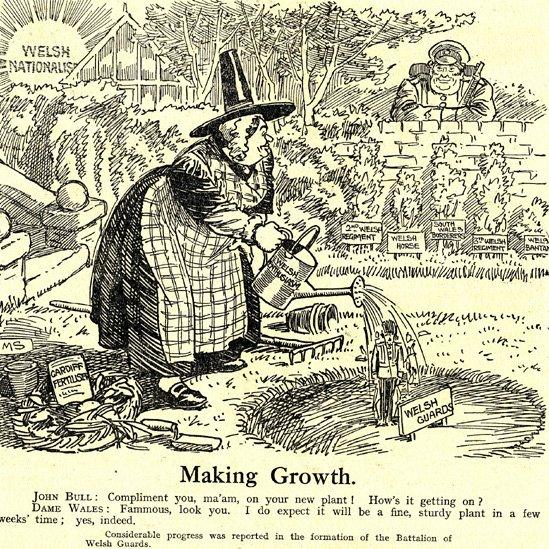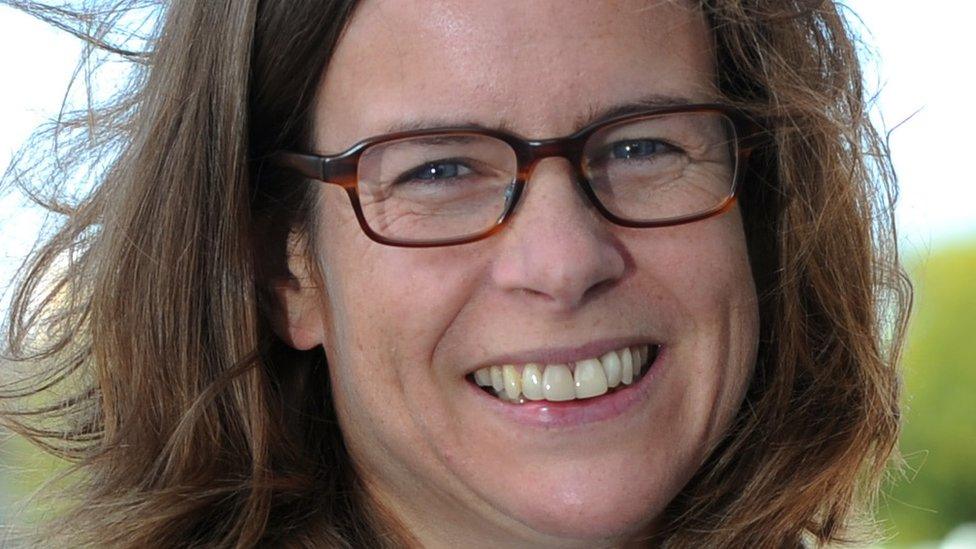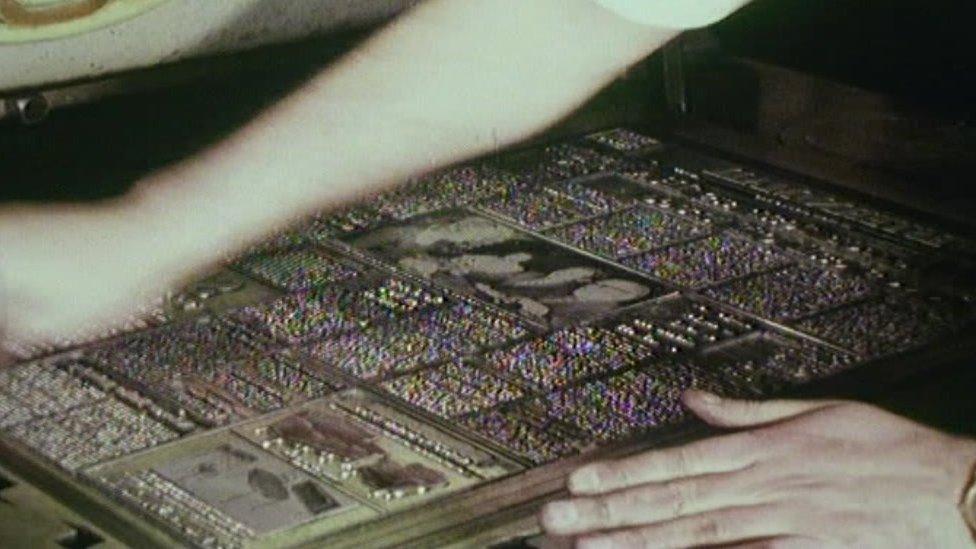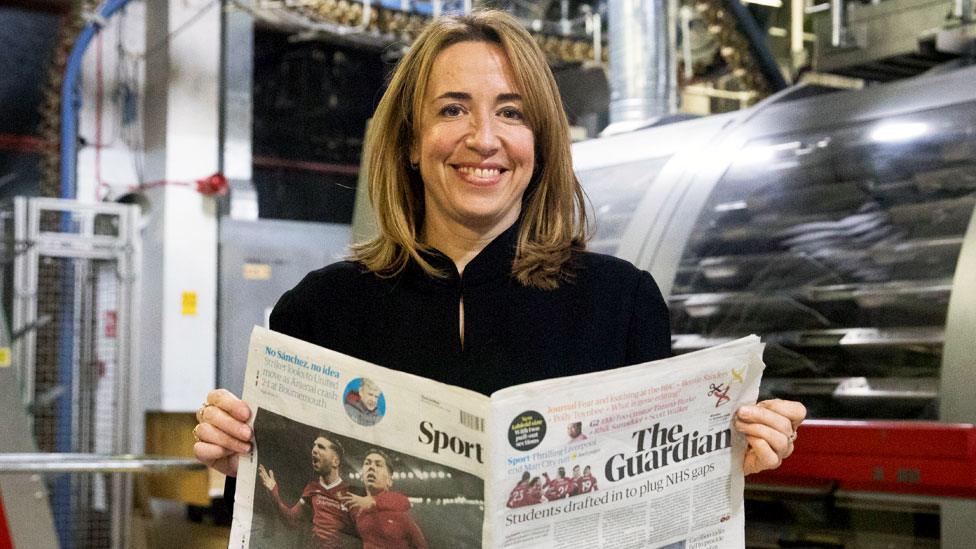Western Mail newspaper celebrates 150th anniversary
- Published
A look back at the 150-year history of the Western Mail
The Western Mail is celebrating its 150th anniversary and it must continue to adapt to change, according to its editor.
Computer technology was a world away when the first edition of Wales' national newspaper rolled off the print presses in Cardiff in May 1869.
Boss Catrin Pascoe said readers were now increasingly looking to get their news via phones and other devices.
The paper's anniversary is the focus of a special BBC Radio Wales programme.
Sport has always been its "staple diet", with match reports featuring games between shoemakers and painters way before rugby and football became multibillion-pound industries, according to sports writer Rob Cole.
He said "sport has been part of the DNA of the Western Mail...right back to the first edition", with an initial reference to horse racing.
An edition in 1891 included a rugby match report between Cardiff hairdressers against shoemakers and later editions saw Swansea bakers against painters, he said.

"Dame Wales" was a stock character for cartoonist JM Staniforth, here in 1915 depicting the growth of the Welsh Guards battalion
"Every game got covered, regardless of what it was," he added.
And world news was as important as local gossip and "ecclesiastical intelligence", according to historian Dr Daryl Leeworthy, from Swansea University.
He said the newspaper had featured everything from sailing times for Bristol Channel crossings to international news.
This was a major focus of newspaper cartoonist JM Staniforth who created a patriotic style during World War One.
And renowned journalist Gareth Jones wrote extensively for the newspaper, including reports about his experiences travelling with Adolf Hitler, external in 1933.

Editor Catrin Pascoe says the Western Mail will continue to adapt
The Western Mail was founded in Cardiff by the third Marquess of Bute, whose family had transformed Cardiff into an industrial powerhouse.
Dr Leeworthy said the newspaper was originally created as his mouthpiece but it went on to connect Welsh society with the outside world.
"In an era before radio broadcast, television broadcast or even the internet, it is the newspaper which is your go-to source for every piece of local gossip and international news," he tells journalist and broadcaster Carolyn Hitt in the radio programme.
She has been a columnist for the newspaper for 27 years and, in the programme, she caught up with former colleagues, including Jeff Priday who saw decades of change in the print room from "hot metal" processes to computers.

Life before computers....newspaper pages ready for printing
"It used to be magic, excitement every night," he said, reflecting on the atmosphere as the newspaper's deadline approached.
"You could feel it build up, the tension. I had no end of rows with journalists, 'come on, the time, the time, the time'."
But all that went "when new technology took over", Mr Priday adds.
Former colleague John Cosslett agrees, saying the starkest difference during his career was when the "cacophony" of press machinery and typewriters went with the arrival of the computer era.
"All that noise indicated effort, speed and urgency," he said. "Nowadays the newspaper office is a quiet haven."
In recent years, print circulations have declined while the digital operations of many publications have grown.
Ms Pascoe said her newspaper continued to adapt.
"From a business point of view, the Western Mail, despite all the challenges it faces, and there are challenges that are unseen, for example, the inflationary pressure on newspaper print itself is double figure, but we are very agile at working round those challenges," she said.

L-R: The front page on 19 September 1997 as Wale votes in favour of an assembly and Gareth Bale at Euro 2016
"So if they [readers] still want it on print, we aim to provide that," she tells the programme.
"But what we are seeing increasingly is that the demand is also for digital and to be able to obtain the news on what [device] matters to them.
"We continue to commit ourselves to delivering news on all those levels."

The Paper Dragon: 150 Years of the Western Mail is broadcast on BBC Radio Wales on Thursday at 18:30 BST
- Published1 April 2019

- Published8 February 2019

- Published15 January 2018

- Published8 February 2016
- Published16 July 2013
